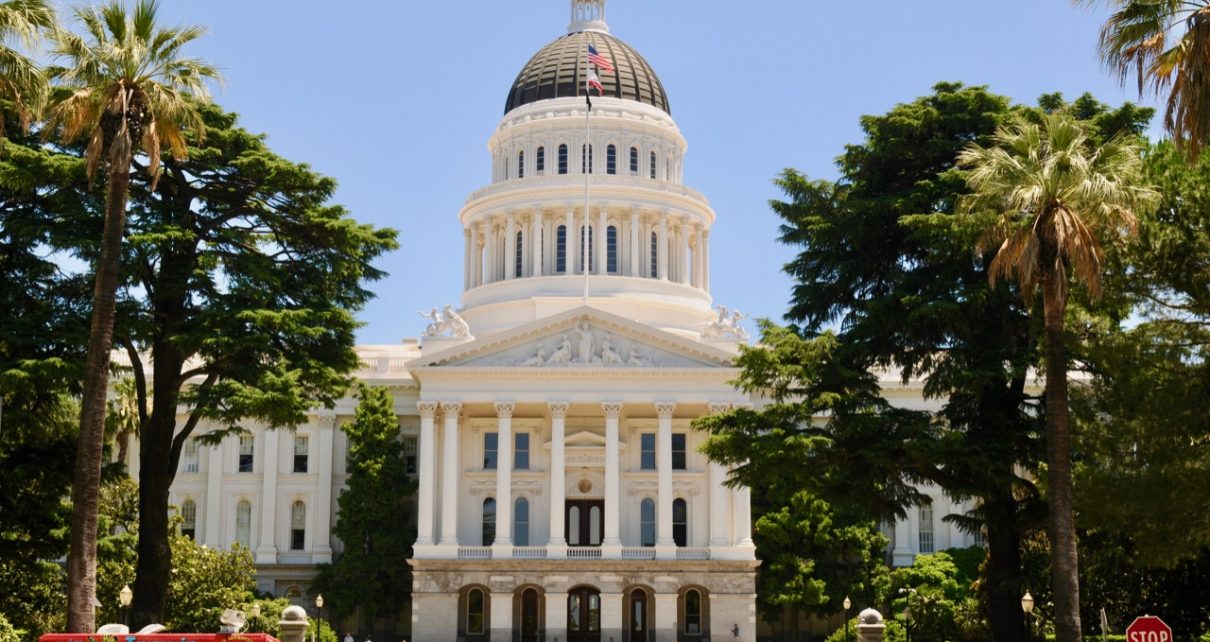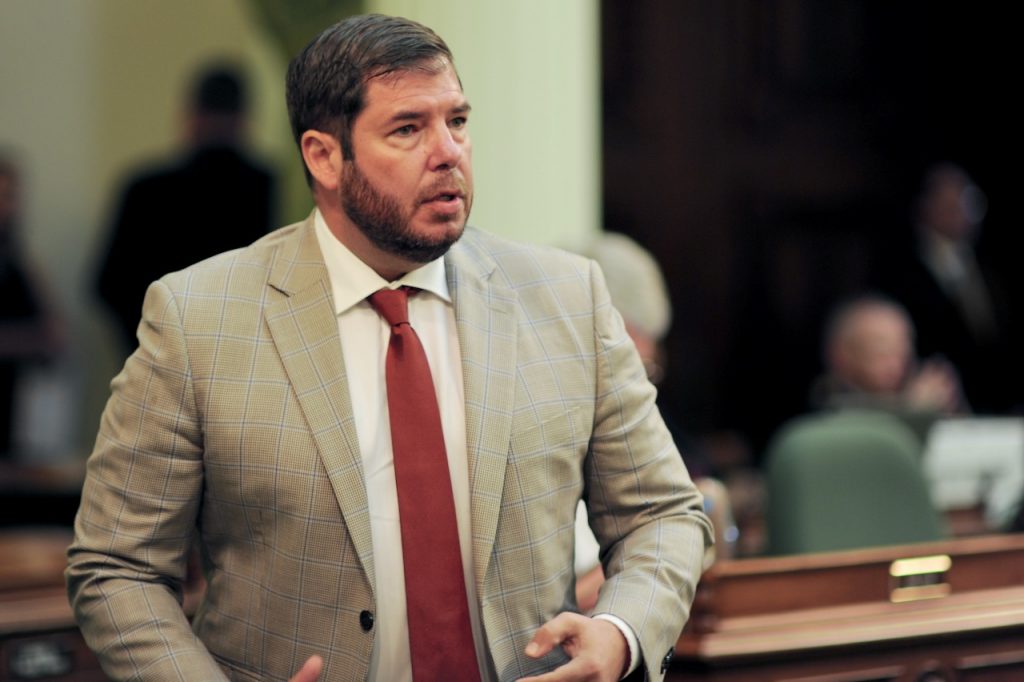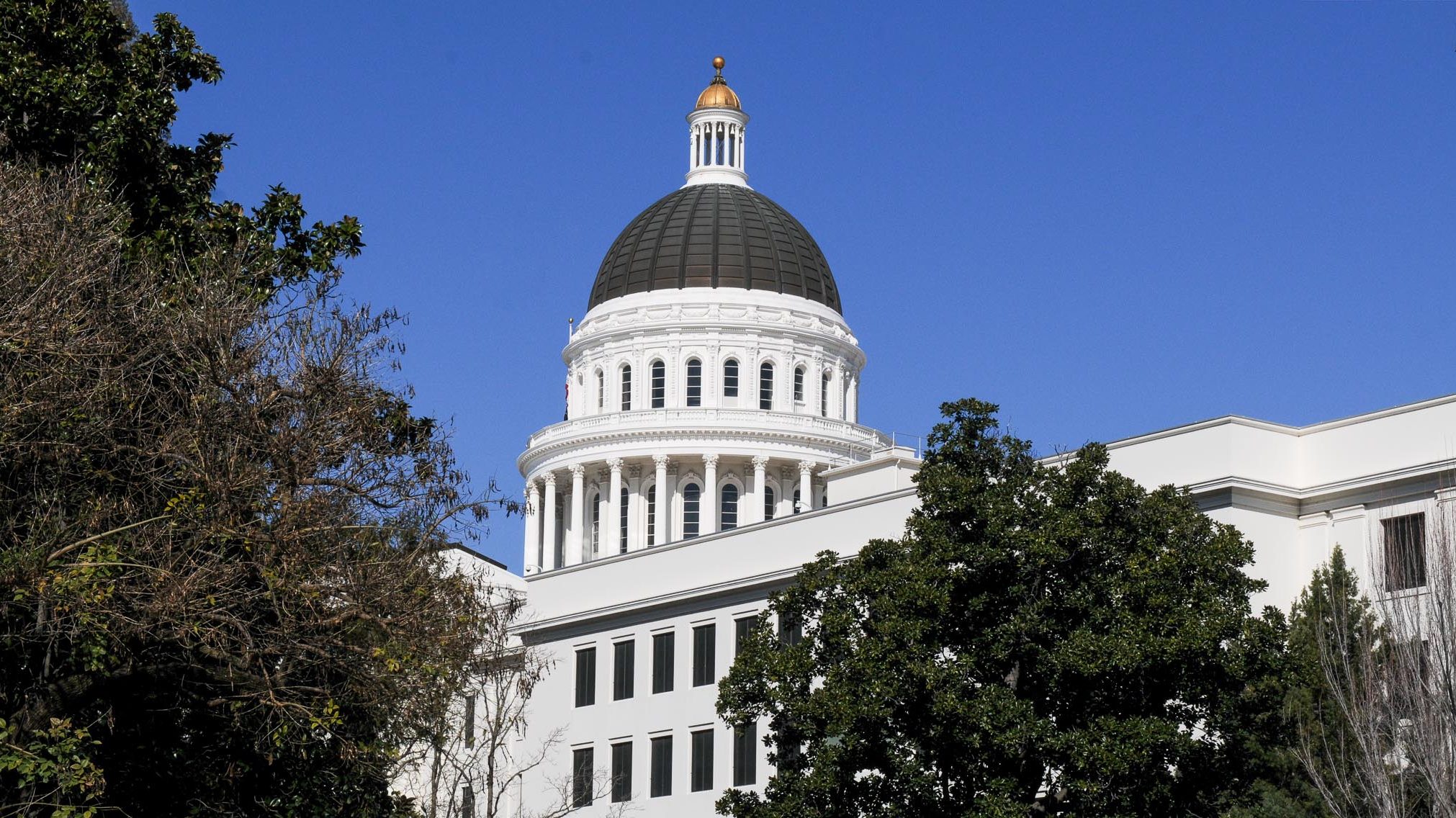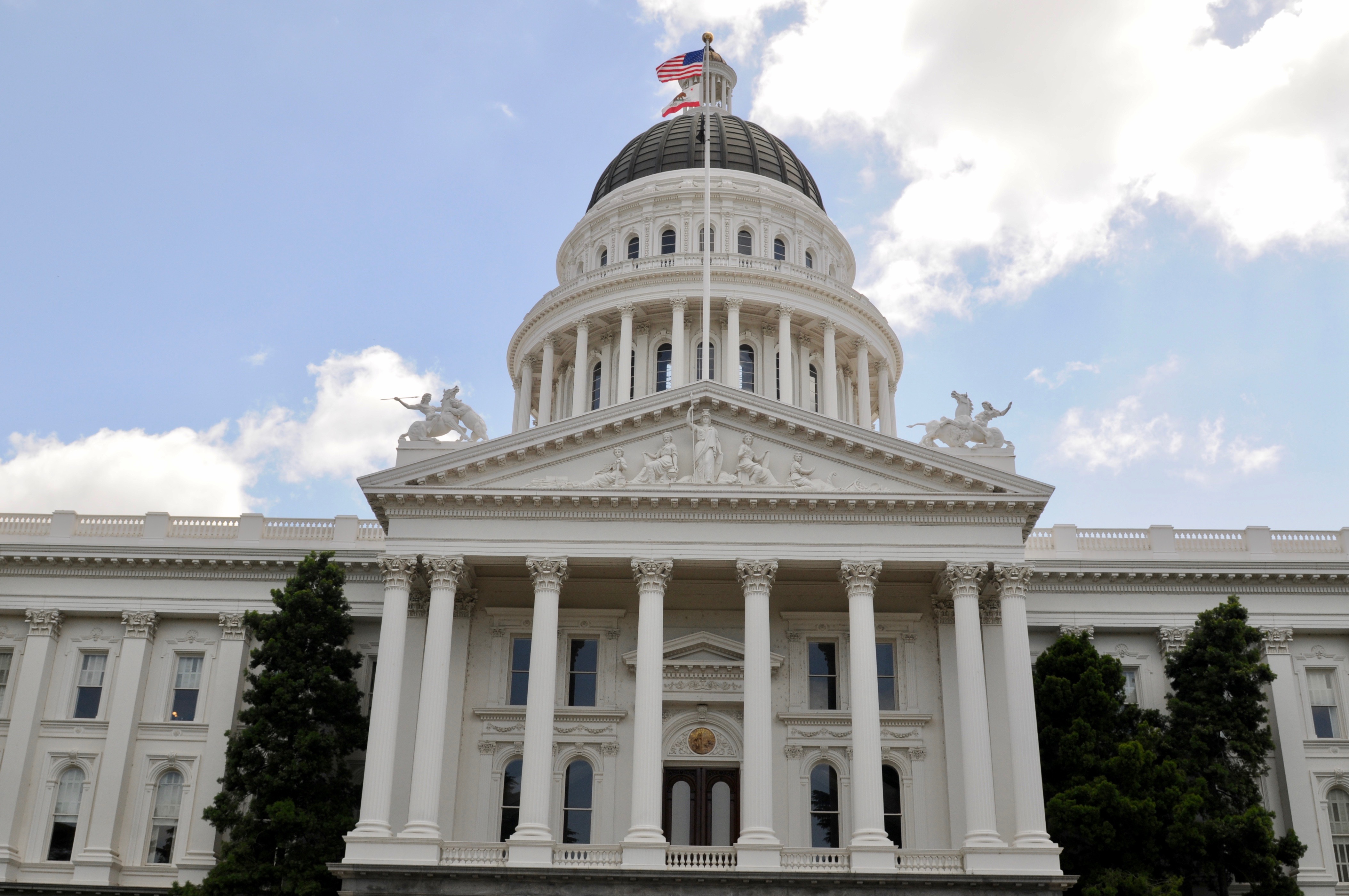
California State Capitol. (Photo: Kevin Sanders for California Globe)
CA Legislature Passes $262.6 Billion 2021-2022 State Budget
‘B.S. budget, round 3’ made up of ‘Band-Aids and buyoffs’
By Evan Symon, June 29, 2021 11:13 am
The California Legislature formally passed the $262.6 billion 2021-2022 budget on Monday, sending the bill to Governor Newsom to sign before the June 30th budget deadline.
The new state budget has been one of the main focuses for both legislators and the Governor in the last few months, as a combined $75 billion budget surplus and $26 billion in federal aid were added this year, greatly expanding a cut back 2020-2021 budget of $202.1 billion that had been significantly reduced due to a 54.3 billion deficit caused largely by COVID-19 economic factors.
Largely a combination and compromise of Newsom’s proposed $267.8 billion May revised budget and the legislature’s $267.1 billion budget proposal passed two weeks ago, the passed budget keeps most of the spending increases proposed by both. While most of the increase will go to simply restoring programs and department budgets that were cut last year, the high surplus and federal aid will also add tens of billions in new or expanded programs.
Among the largest approved expansions on Monday was the $12 billion for an expansion of the Golden State Stimulus program. Under the proposed plan, Californians making $75,000 a year or less will receive $600 from the state. Families with children will receive another $500, with undocumented families also receiving $500. $1.5 billion in small businesses grants were also added to aid small businesses, with each eligible business receiving between $5,000 and $25,000.
Another $12 billion will go to expanded homeless programs in the next two years. Local governments alone would receive $1 billion of that aid, with both the Project Roomkey and Project Homekey programs making a return.
Larger educational changes were also added. Under the new budget, California would have a two-year kindergarten which would be free for nearly 350,000 children every year but would also add $2.7 billion a year to the budget. Another $2 billion would go to safely returning to in-person classes this fall, as well as expensive programs that would pay for, amongst other endeavors, free breakfast and lunch programs for all public school students. UCLA, UC Berkeley and UC San Diego would also be affected, replacing 900 out-of-state students with in-state students, costing California $184 million in the next 3 years.
Polarizing reactions from Democrats, Republicans

(Photo: Kevin Sanders for California Globe)
Legislative democrats were largely in favor of the budget on Monday, specifically noting that most of the new spending will go towards one-time only programs to not further inflate the budget in years to come, as well as deny Republicans more long-term high spending accusations focused at the recall-beleaguered Governor Gavin Newsom.
“This budget does not get us back to normal, as that was not our intent,” said Assemblyman Joaquin Arambula (D-Fresno) on Monday. “Instead, it gets us to a better place by making transformative change for Californians.”
Other Democrat legislators noted similar sentiments about the budget passage.
“With this budget today, we are building a future,” added Assemblyman Jose Medina (D-Riverside) in a tweet. “We are creating opportunities for our most underserved students—we are making education and growth accessible to all.”
With this budget today, we are building a future. We are creating opportunities for our most underserved students—we are making education and growth accessible to all. #CABudget pic.twitter.com/FgQ5Cu8tQW
— Jose Medina (@AsmJoseMedina) June 29, 2021

“B.S. budget, round 3,” said Senate Republican leader Scott Wilk (R-Santa Clarita) in a statement on Monday. “The governor again invests in himself with Band-Aids and buyoffs that sweep real problems under the rug. Senate Republicans proposed logical solutions that would have helped ordinary Californians by saving businesses, protecting jobs, reforming EDD, establishing a Gas Tax Holiday, and bringing accountability to wildfire.”
Other Republicans noted similar disappointment and anger over the budget’s passage.
“The Governor and legislative Democrats have wasted a golden opportunity to ensure California can pay for essential services during a future economic downturn,” added Senator Patricia Bates (R-Laguna Niguel). “Instead, they have created a spending path that will lead to operating deficits by 2022-23. This will inevitably lead to either tax increases, budget cuts, or both.
“While the budget does contain some items most Californians can support, such as more funding to process unemployment insurance claims and a significant amount of funding to expand broadband internet service, the budget does not pay down the state’s unemployment insurance debt. This debt is essentially a jobs tax at a time when many businesses are still struggling to emerge from the COVID-19 shutdown. The budget also contains far too many new spending commitments that will be unaffordable in the long-run.
“Unfortunately, politics has gotten in the way of good public policy. The spending spree of today will lead to some very hard decisions tomorrow that will leave many Californians further disillusioned with their state government.”
Governor Newsom is expected to sign the budget either Tuesday or Wednesday before the budget deadline.
- Bill to Require Law Enforcement Disclosure if AI Was Used To Help Write Reports - August 7, 2025
- Gov. Newsom Files FOIA Request To ‘Expose True Cost’ Of L.A. Federal Troop Deployment for Anti-ICE Riots - August 6, 2025
- California Redistricting: How Newsom’s Plan Will Demolish Hard Fought GOP Gains - August 6, 2025





All a part of their plan…
Solve one created crisis and create a future one when this state soon runs a deficit and cannot pay for government basics of security, safety and general infrastructure.
Higher taxes for all and I do not need a crystal ball to tell me so!
Spend,tax,spend,tax, spend,tax!
This state is in DEFICIT mode, they just hide it. How much is owed to CalSTRS and CalPERS – last I heard its about 400 billion.
Most cities in CA continue to cut services to pay pensions to Fire, Police and some cities have gone bankrupt because of it.
Right now property taxes and house prices are high but once a pull back happens, CA cities are unprepared much like the state of CA. That tax money will dry up and they will be siphoning from residents with increased fees, taxes. Cities will surely go back to “its for the kids” (teachers but really their pension) or “Its for your safety” (Police and Fire, but reality its more money to their pension) voting initiatives to raise sales taxes or add to property tax.